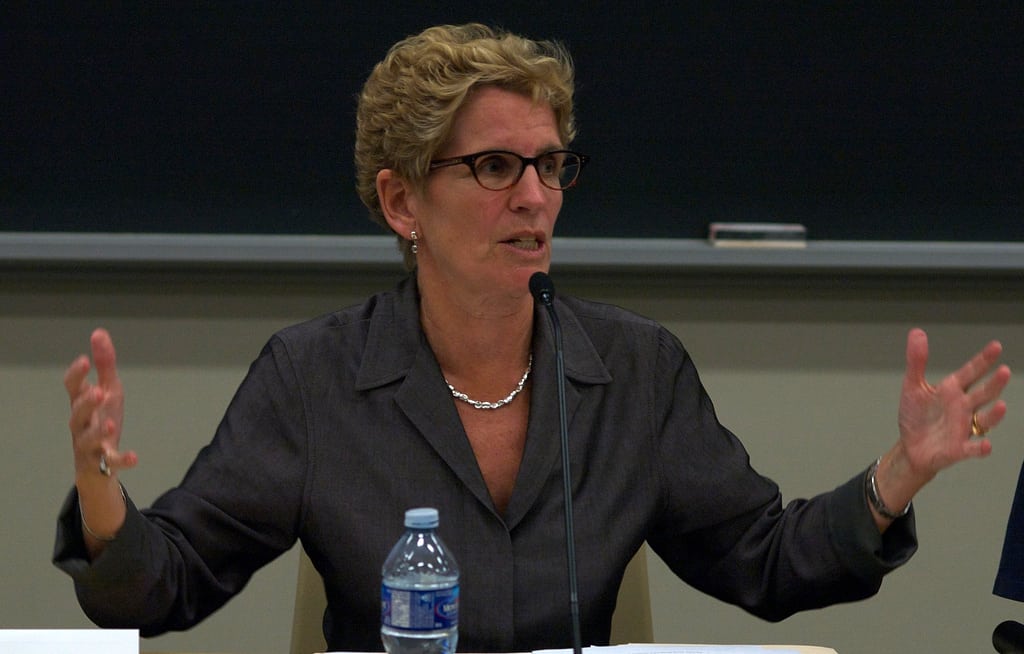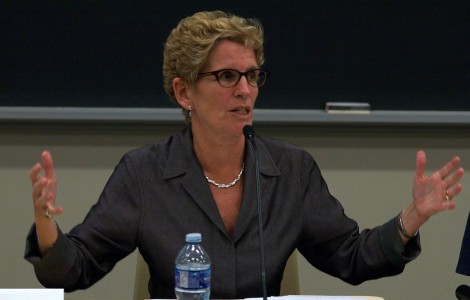On November 15, Canada’s provincial premiers met to address the country’s most urgent public finance priorities: foreign direct investment, the Canada Job Grant’s viability, and the thorny topic of pension reform. Ontario Premier Kathleen Wynne urged her colleagues to avoid the impending fiscal iceberg that is Canada’s pensions and retirement saving deficit.
The current dialogue emphasizes brainstorming potential pension reform options for individual provinces. The federal and provincial governments should agree on terms for the incremental expansion of the Canada Pension Plan (CCP). Failure to do this will either worsen already dire imbalances in the inter-generational economic compact, or it will guarantee the move to an even more complex, bloated, and stagnant pensions system.
A bit of context: Canadians are not saving nearly enough, they are set to live longer than ever, and the cost of living is rising in tandem. At the same time, the federal retirement and pensions system is still legally committed to providing a minimum pre-retirement income in old age — a key element in many Orgination of Economically Developed Coutries (OECD) nation’s social compacts.
But as income inequality rises federally, and with baby boomer retirees set to retire en masse, this minimum is thinning, leaving droves of young people at a loss for an affordable pension supplement. Contrary to what most young adults and university students believe, the pension crisis is not just about older people’s old age pension, today’s 20-somethings stand to lose a substantial portion of theirs unless this is rectified. In the meantime, old age poverty and homelessness rates are on the rise, as a direct consequence of this inequity.
The federal government, under Conservative leadership, cannot be relied upon to suggest anything more than encouraging words, and the usual mantra of private initiative, to remediate an essential government responsibility that has gone unfulfilled. Federal Finance Minister Jim Flaherty recognizes the importance of this looming pensions gap, but he prefers to avoid another recession by crippling middle income-range Canadian household’s pensions in order to boost the economy.
Evidence linking the absence of adequate pension provisions to radical increases in foreign direct investment is currently lacking, pointing to a political argument for inaction rather than an economic one.
Along the same lines, the premiers agree that the CCP should be expanded — the majority of Canadians’ opinion at the time of writing — but the Harper administration feels that fixing this structural economic problem might endanger Canada’s GDP growth prospects. The federal government’s unresponsiveness to the urgent pension crisis is thus largely political, likely linked to the upcoming elections in 2015.
At the end of the 2013 Council of Federations meeting, there was widespread agreement that reforming the CCP is a priority, but the federal government’s argument struck a few notes. Alberta and New Brunswick’s premiers are not urgently considering pension reform, while the remaining provinces either have voluntary alternatives, or are actively supporting CCP’s enhancement.
More pension and retirement savings plans at both federal and provincial levels will complicate Canadians’ retirement options. It will muddy the regulatory waters around exact rules for business owners and employers’ retirement saving bill. It is sure to divide provinces in their stance on pension reform, just as it gives the bulk of the reform leadership to its federal detractor.
The simplest solution is to coordinate between provincial and federal actors in order to agree on expanding the CCP’s. This would provide a clear message that the federal government is keen to prevent substantial imbalances from creating structural problems in Canada’s labour market, or in its social security system. The best solution to highly complex problems is often the simplest one. A collective agreement to coordinate saving between provinces to ensure federal-level balance would be best. Indeed, if we must redefine the social compact on pensions and pre-retirement savings, why not be proactive and cooperative about it? The alternative is sure to confuse foreign investors, impoverish the aging baby-boomer demographic, and guarantees structural imbalances within Canada’s workforce. Let’s not reach that tipping point.
Yves Guillaume is in his final-year of a specialist in political science. He is a political commentator on CTV National News.



